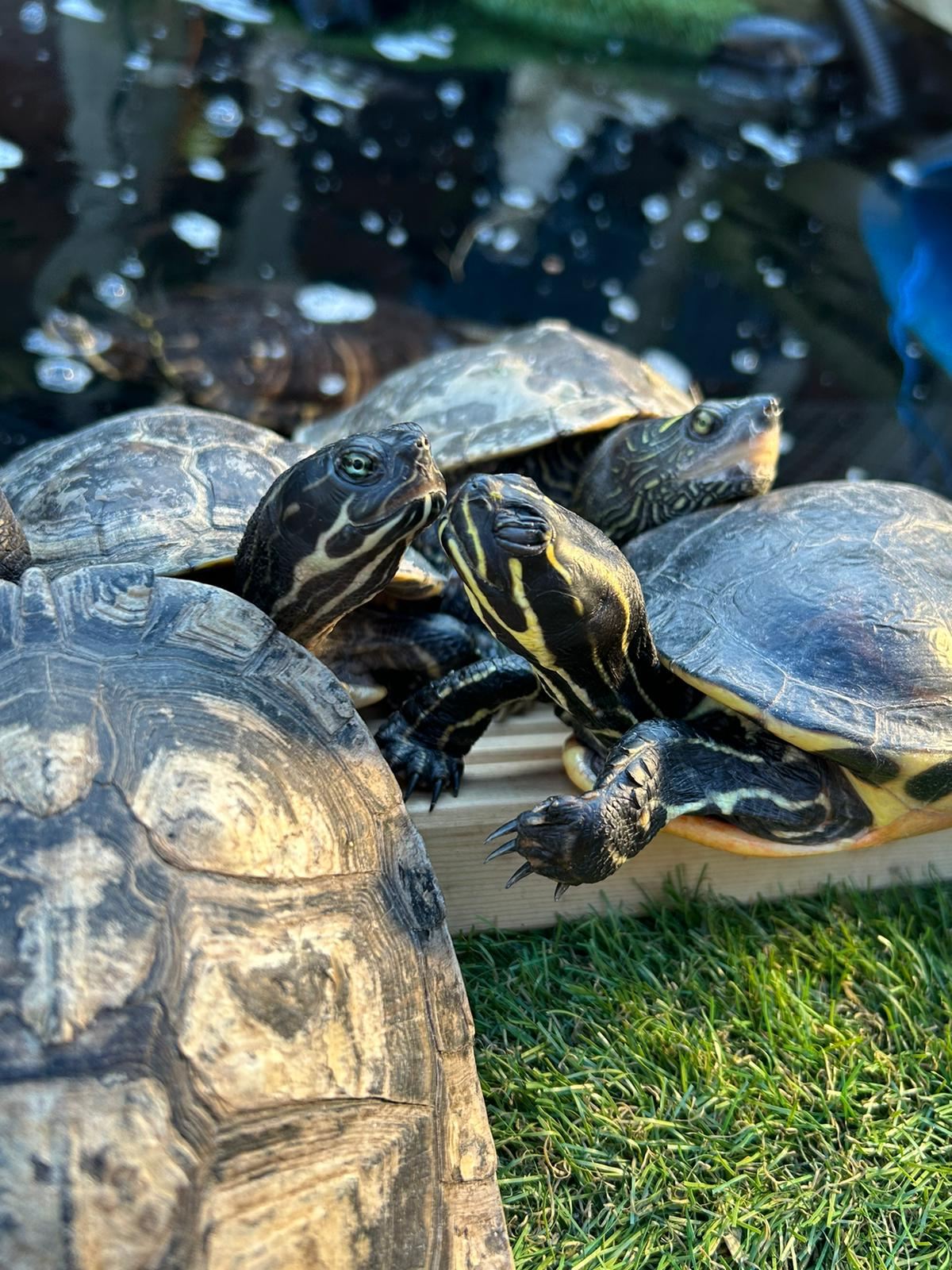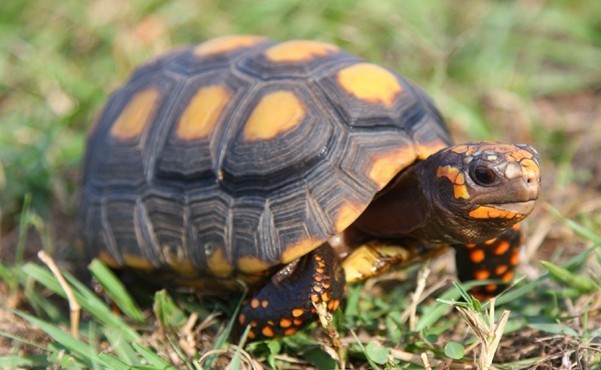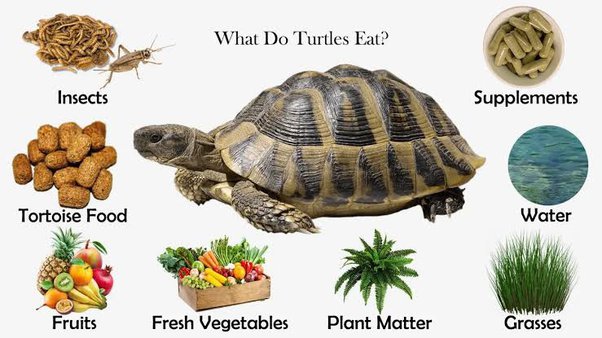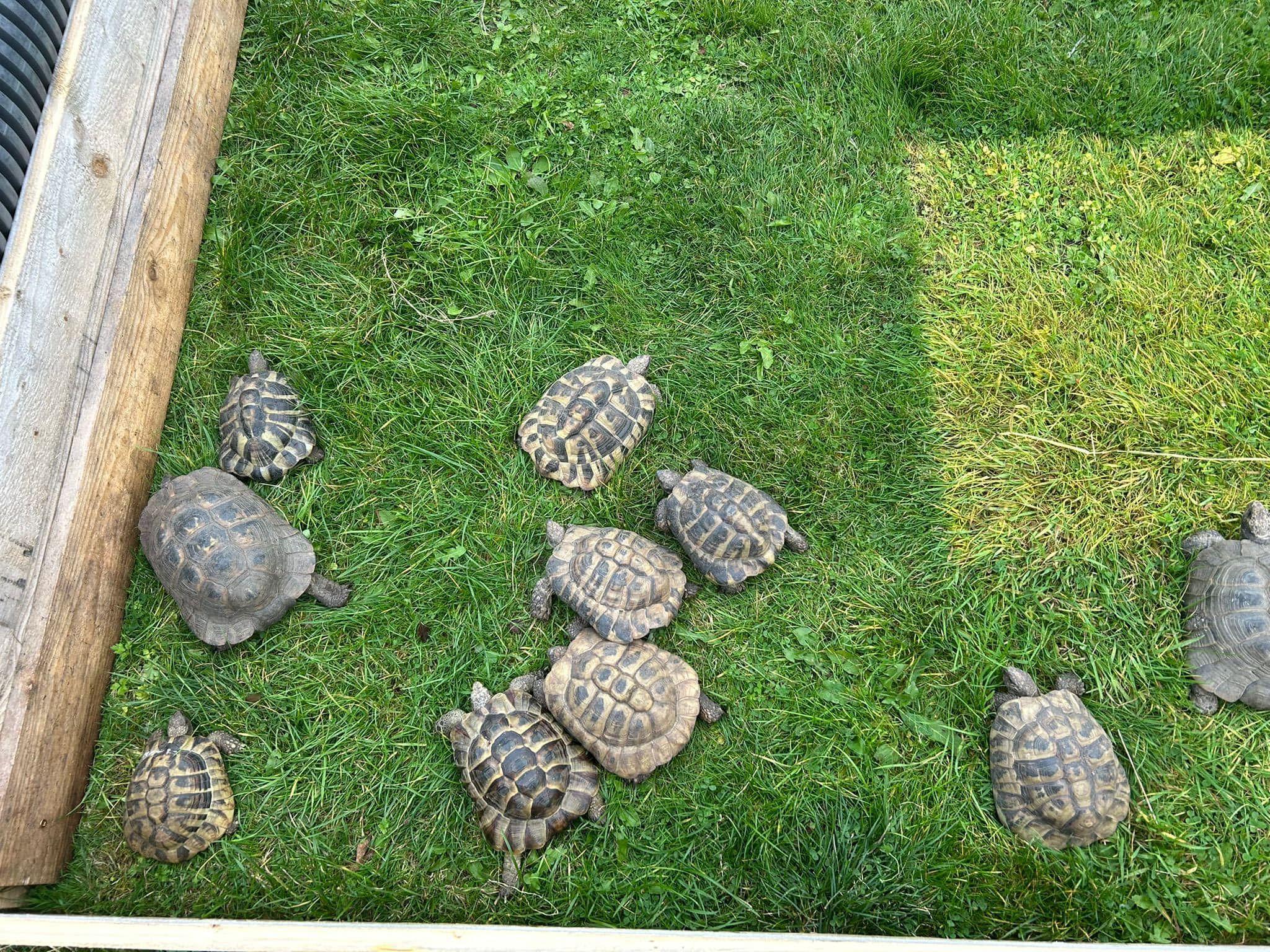
Shedding
Terrapins/Turtles are reptiles, who shed their skin. Shell plates will shed individually and the skin around the legs and neck will shed in pieces. Both should happen easily without intervention.
It is very important for them to have the opportunity to come out of the water, otherwise they may get a fungal infection.
Having the opportunity to come out of the water often is important for shedding, otherwise they may get a fungal infection. If your Terrapin has sores, or is constantly shedding, you should seek the advice of your reptile vet to rule out a shell or skin infection.
Diseases & Concerns
A healthy Terrapin has clear, bright eyes and a smooth shell. The skin should be smooth and without blisters, if the animal does it can be a sign of an infection.
Terrapins/Turtles can suffer from nutritional diseases, unless they have a varied diet with the correct heating and lighting systems that should be regularly checked. You should register with a specialised reptile vet so that the animal can have access to check-ups and medical treatment when necessary.
It’s important to feed a range of fish, so that the Terrapin gets a varied diet and also to avoid a build up of toxins from any one type of fish.
One of the most common and serious issues that affects captive reptiles is vitamin or mineral deficiencies. Metabolic bone disease (MBD) describes a range of nutritional diseases and imbalances, typically involving a lack of available calcium due to a deficiency of vitamin D3, most often due to a lack of UVB lighting. Symptoms of MBD include swellings around the mouth or eyes, or the shell becoming uneven. Young turtles with MBD can have soft shells, like rubber.
Terrapins are also very likely to have eye problems. This may be related to water quality or due to vitamin A deficiency, which is one of the reasons why a varied diet is so important. Try to include lots of vegetables containing beta carotene, such as sweet potato.
If the Terrapin is not eating as normal then this may be a sign of internal parasites. Sliders can also suffer with mouth infection or mouth rot, so look out for changes in the mouth.
Terrapins are a large species that require lots of care and equipment to keep them happy and healthy for life. It’s essential that you take time to research the diseases of pond Terrapins further. If you do get a Terrapin, monitor its health daily and contact your reptile vet urgently if you have any concerns.



